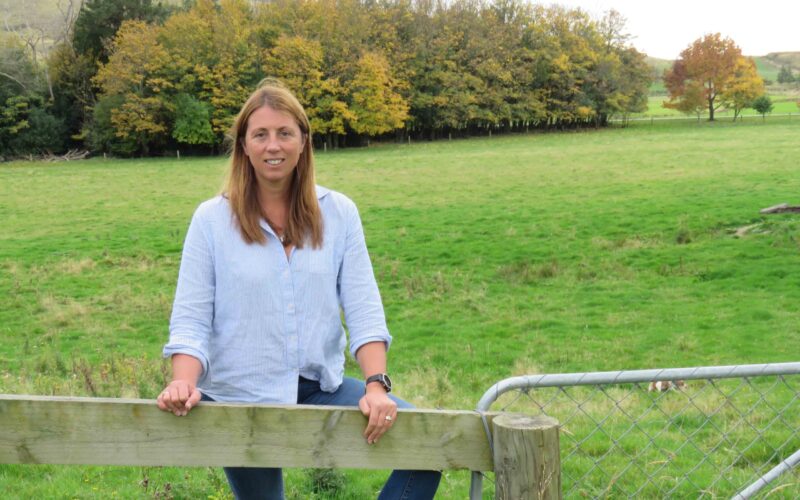The primary sector has become divided after six years dealing with new government legislation, leaders say.
Trying to meet the expectations of farmers, growers and the government, they say, has caused division and taken an enormous toll on leaders.
Rural confidence has been negative for years. People are angry, leaders subject to personal attacks and support for ginger groups such as Groundswell is growing among those feeling disaffected.
Against this backdrop, levy payers have asked producer bodies to be more active in advocacy, but this is now being questioned.
New Federated Farmers president Wayne Langford wants greater clarity about the roles of Federated Farmers, Beef + Lamb NZ (BLNZ) and DairyNZ, which he says now overlap.
He sees Feds as farmers’ political voice and BLNZ and DairyNZ as having roles in extension, science and, for BLNZ, marketing.
Federated Farmers has had two presidents since May last year and a largely new executive after three resigned due to the workload. BLNZ has a new chair in Kate Acland, and there are new chief executives at DairyNZ, Campbell Parker, and at HortNZ, Nadine Tunley.
BLNZ released a report this week that says that in the past six years the government has introduced more than 20 rules and regulations that affect the primary sector.
Langford said the resulting workload has exhausted leaders.
“I’m not surprised there has been a bit of a changing of the guard. There has been a bit of a leadership fatigue,” he said.
Acland said the He Waka Eke Noa (HWEN) debate was especially divisive and created anger and mistrust as leaders juggled the multiple views of levy payers and the limits of transparency permitted during negotiations.
“HWEN really fragmented our sector,” she said.
“Climate change is a reality and we have to deal with it, but where we got it wrong with HWEN is we got too far ahead of farmers.
“The government did not lead by providing choices and demonstrating how farmers can take each step.”
BLNZ has had to become politicised to deal with government policies, she said, and this has led to confusion.
“The last three years we have had to be tactical with what we can influence,” she said.
Former BLNZ chair Andrew Morrison became a casualty of the failed HWEN discussions when he was voted off the board at this year’s annual meeting.
Levy payers felt the proposed HWEN solution on pricing agricultural emissions was unfair to beef and lamb farmers and the tone of remits at the meeting indicated dissatisfaction with BLNZ’s performance.
“The clear message was about the process, listening and understanding,” Acland said.
She conceded that the mix of fear and frustration led to the formation of Groundswell.
“I acknowledge and sympathise with that view but don’t always agree,” she said.
The dairy industry does not appear to have had the same internal conflict, but among the 13 candidates seeking a director’s role at this year’s annual meeting, at least three have indicated that they want the organisation to take a more political role.
DairyZ chair Jim van der Poel said it hasn’t helped leaders that much of the government policy had been poorly thought through.
In the case of HWEN, leaders had to grapple with the fact that the alternative to reaching agreement was being forced into the Emissions Trading Scheme.
He said the key for leaders is to maintain trust and, having engaged with 3000 farmers in meetings over HWEN, the body had thought it had achieved that.
It had not, and the debate was lost as the issue became clouded and confused.
Having spent 23 years in governance roles, Van der Poel said he knows change is difficult but he can still sit down and have a cup of tea with detractors.
“The future is the future and we have to be part it,” he said.
Morrison said issues that divide the sector, such as water quality and climate change, are not going away and farmers need to decide if they want to be part of the solution.
“Until we fix it, the conversation is not going away and the problem is that we could get a top-down solution: ‘I will tell you how we are going to fix it.’”
Leaders accept they will be judged, but they still deserve respect as they act in the best interests of the sector.
“This is where the farming community has got to sit down and decide if they want to beat up their leaders or support them.”
He said behaviour by some has at times crossed the line of what is acceptable, citing Groundswell selling golf balls at Fieldays with images of cabinet ministers on them.
“When people start raising personal issues and playing the man rather than the ball, do we as a sector really want to go down that path, is that where we want our sector to be?
“The reality is that if we want to be the best farmers in the world, we need to display behaviour to support that.”






